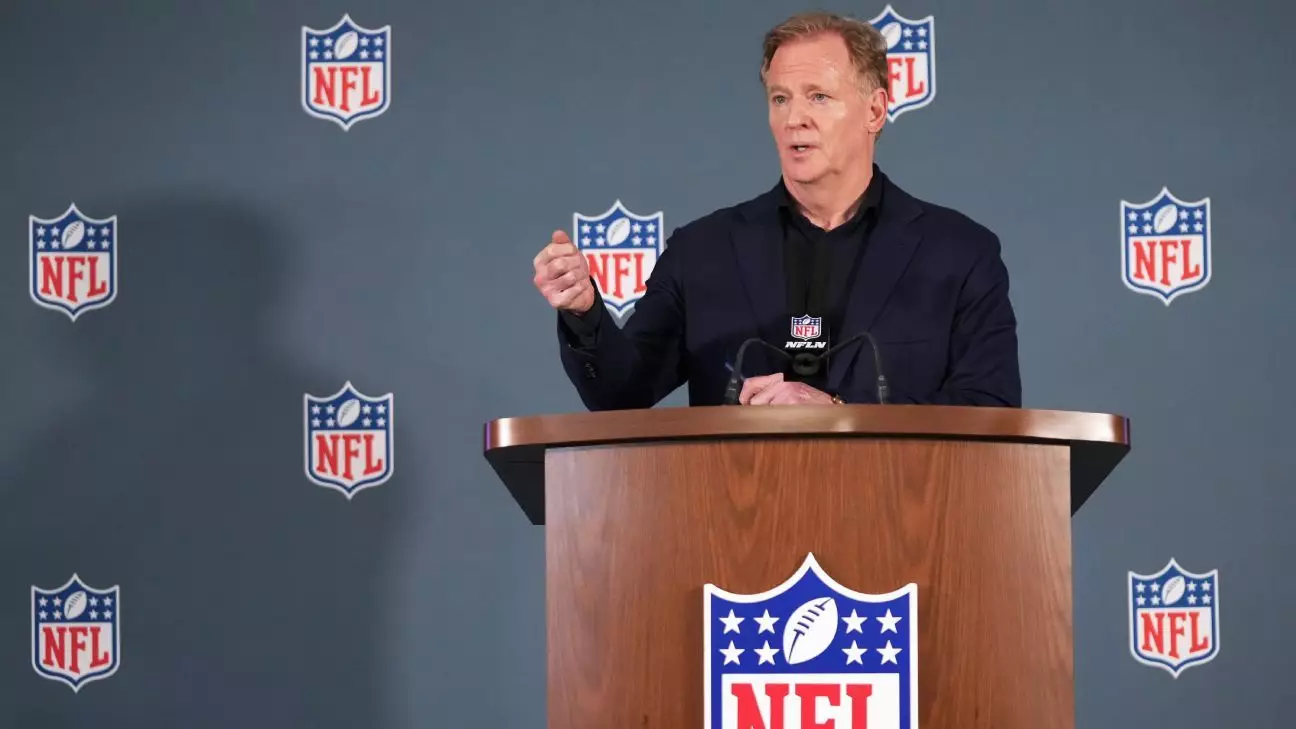Empowering the Future: NFL’s Potential Olympic Flag Football Venture
The idea of seeing NFL players compete in flag football during the 2028 Los Angeles Olympic Games is nothing short of thrilling. It marks a potential turning point for both the athletes and the sport itself. NFL Commissioner Roger Goodell has expressed that many players are incredibly eager to take part, showcasing their talents on such an esteemed international platform. This isn’t just a fleeting interest; it’s a deep-seated enthusiasm that highlights American football’s evolving aspirations and its quest for global recognition.
Flag football’s debut on the Olympic stage represents more than just the introduction of a new sport. It symbolizes the NFL’s broader ambitions to expand its brand and reach a worldwide audience. By embracing flag football, the NFL aims to connect with younger generations, including children and women who might find traditional tackle football daunting but can enjoy the inclusive nature of this no-contact variation. This strategy seems well-grounded, though there are still hurdles to overcome in making this ambitious dream a reality.
Key Takeaways
- The inclusion of flag football in the Olympics represents a significant opportunity for the NFL.
- Engaging younger audiences is central to the NFL’s strategy for growth through flag football.
- Challenges like scheduling conflicts and diversity representation need careful consideration.
Navigating Challenges with Care
While excitement surrounds this venture, challenges certainly lie ahead. Goodell has noted that ensuring player safety and preventing injuries are top priorities, especially when considering professional athletes for an Olympic setting. The scheduling overlap between the Olympics and NFL training camps presents logistical hurdles that require thorough examination. With the Olympics slated for July 14-30, 2028, this period coincides with crucial preparation times for the NFL season. To address these conflicts effectively, collaboration among league officials, team executives, and other stakeholders is essential.
This initiative also opens doors for enhancing diversity and representation within the NFL. The league’s current negotiations could serve as a catalyst for highlighting diverse talents at the 2028 Olympics. Although Goodell acknowledges ongoing challenges around diversity, there’s still work to be done in ensuring that league programs truly make an impact. The lack of Black offensive coordinators in today’s NFL landscape calls for immediate action beyond mere verbal commitments. It demands tangible cultural change within the organization.
Diversity’s Integral Role in the League’s Commitment
Goodell’s statements on diversity, equity, and inclusion may have admirable intentions, but they often seem hollow against the backdrop of the NFL’s hiring practices. While he champions diverse voices as essential to boosting league performance, statistics often tell a different story. The continued reliance on mechanisms like the Rooney Rule generates skepticism about their efficacy in driving real change rather than serving as temporary fixes to deeper issues.
Dallas Cowboys owner Jerry Jones has expressed support for the Rooney Rule, but mere endorsement isn’t enough if it doesn’t lead to concrete results. If diversity is truly a core value for the league, it must be matched by equitable opportunities in hiring processes and authentic recruitment strategies that promote inclusivity across all levels. Actively seeking out diverse coaching staff—especially in impactful roles like offensive coordinator—should be a priority that reflects the vast array of talent present in today’s game.

As the NFL gears up for potentially competing in the 2028 Olympic Games, it must let growth and adaptability guide its decisions. Flag football could become a pivotal force in nurturing a new generation of athletes while fostering broader cultural shifts within professional sports. However, this journey demands more than just enthusiastic remarks from leadership; it requires a comprehensive reevaluation of practices that impede progress and concerted efforts to promote inclusivity and representation throughout all aspects of the game.
Final Thoughts
Looking forward to perhaps participating in the 2028 Olympics presents an unparalleled opportunity for growth within the NFL. Flag football could be instrumental in cultivating fresh talent pools while encouraging broader changes within sports culture. Yet this path is fraught with challenges that necessitate addressing systemic barriers head-on. As they navigate these transformative waters, it’s crucial for leaders to focus on ethical growth that aligns with contemporary values and meets urgent needs for inclusivity and representation.

The future holds immense possibilities if approached mindfully—integrating flag football into global platforms could redefine how we view American football on an international scale. But achieving this vision will require dedication not only from those at leadership levels but also across every facet related to player welfare and diversity initiatives alike.
NFL Olympics flag football diversity global sports


Leave a Reply